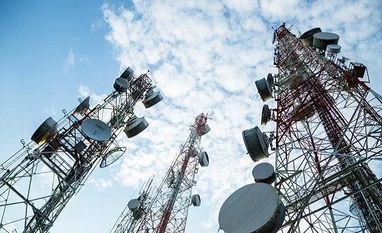Telecom operators Reliance Jio, Bharti Airtel and Vodafone Idea in their submission to the sector regulator Trai have sought allocation of spectrum through auction and opposed giving away any amount of airwaves to any commercial entity through any other means.
Telecom players have demanded up to 95 per cent cut in reserve price for spectrum in mid-frequency range compared to earlier suggested price by the Telecom Regulatory Authority of India (Trai) and the price of high frequency bands should be kept at 1 per cent of the price of mid-frequency range.
The Telecom Regulatory Authority of India (Trai) had earlier recommended the base price of proposed 5G spectrum in 3,300-3,600 Mhz band at about Rs 492 crore per Mhz unpaired spectrum on pan India basis.
Telecom operators interested in buying radiowaves for 5G will have to shell out a minimum of Rs 9,840 crore on pan-India basis to buy spectrum in the 3,300-3,600 Mhz band. If the telecom operators' demands are met then the medium band spectrum should cost them only Rs 492 crore at the base price.
Satellite players which include Tata group's Nelco, Viasat, industry bodies ISPA and SIA have opposed the proposals of telecom operators especially that of Reliance Jio submitted to the Trai in response to the consultation paper on spectrum price and its auction for mobile broadband and 5G services.
"...we take this opportunity to reiterate that all available and identified IMT spectrum should be put to auction and that auction is the only legally tenable mode for alienating spectrum that can be used for public/private communication networks for Indian customers," Reliance Jio said in its counter comment submitted to Trai.
Also Read
The company asked Trai to enlarge the spectrum allocation in the mid-frequency band and demanded that the entire C-Band (3300-4200 MHz) should be auctioned.
RJIL and Vodafone Idea (VIL) demanded that the existing frequency range of 24.25 Ghz to 28.5 Ghz should be put to auction in the coming auction.
"It should be aimed to bring the remaining 28.5 to 29.5 Ghz also for auction for IMT purposes," VIL said.
Indian Space Association, which represents satellite players like Hughes, Nelco, OneWeb etc, said that spectrum allocated for telecom service use cannot be compared with that of satellite services as the technologies are different and there are no precedents of spectrum assignment by auction to satellite services in the mid and high frequency range in any country.
"Reliance Jio's proposal on replacing the administrative licensing regime for shared spectrum uses (an international practice for satellite services) and replacing it for auctions is technically and economically flawed," satellite company Viasat said.
It said that RJIL is technically flawed because, amongst other considerations, hundreds of satellite systems are visible from the geostationary arc (GSO) and NGSO satellite systems would add hundreds of thousands more. All these systems reuse and share the same spectrum.
Nelcos in its submission said that different services utilise the spectrum in different ways Satellite spectrum used by TV channels, public radio, spectrum used by defence forces etc are serving different needs of the society and everything cannot be equated in commercial value and put to auction.
"Satellite spectrum auction may prove to be a sure-shot death nail for satellite communication services in the country," Nelco said.
ISPA said that only 24.25-27.5 Ghz has been allocated for mobile services use by the UN body International Telecommunications Union (ITU)and it has not considered spectrum for mobile services beyond this frequency range.
Satcom Industry Association said that Reliance Jio proposal to auction 24.25-29.5 Ghz, which is used on a shared basis by satellite services, are outside the scope of consultation on the upcoming auction.
Satellite players have unanimously demanded to reserve the entire frequency range between 27.5-29.5 Ghz for satellite powered broadband services in India.
(Only the headline and picture of this report may have been reworked by the Business Standard staff; the rest of the content is auto-generated from a syndicated feed.)



)